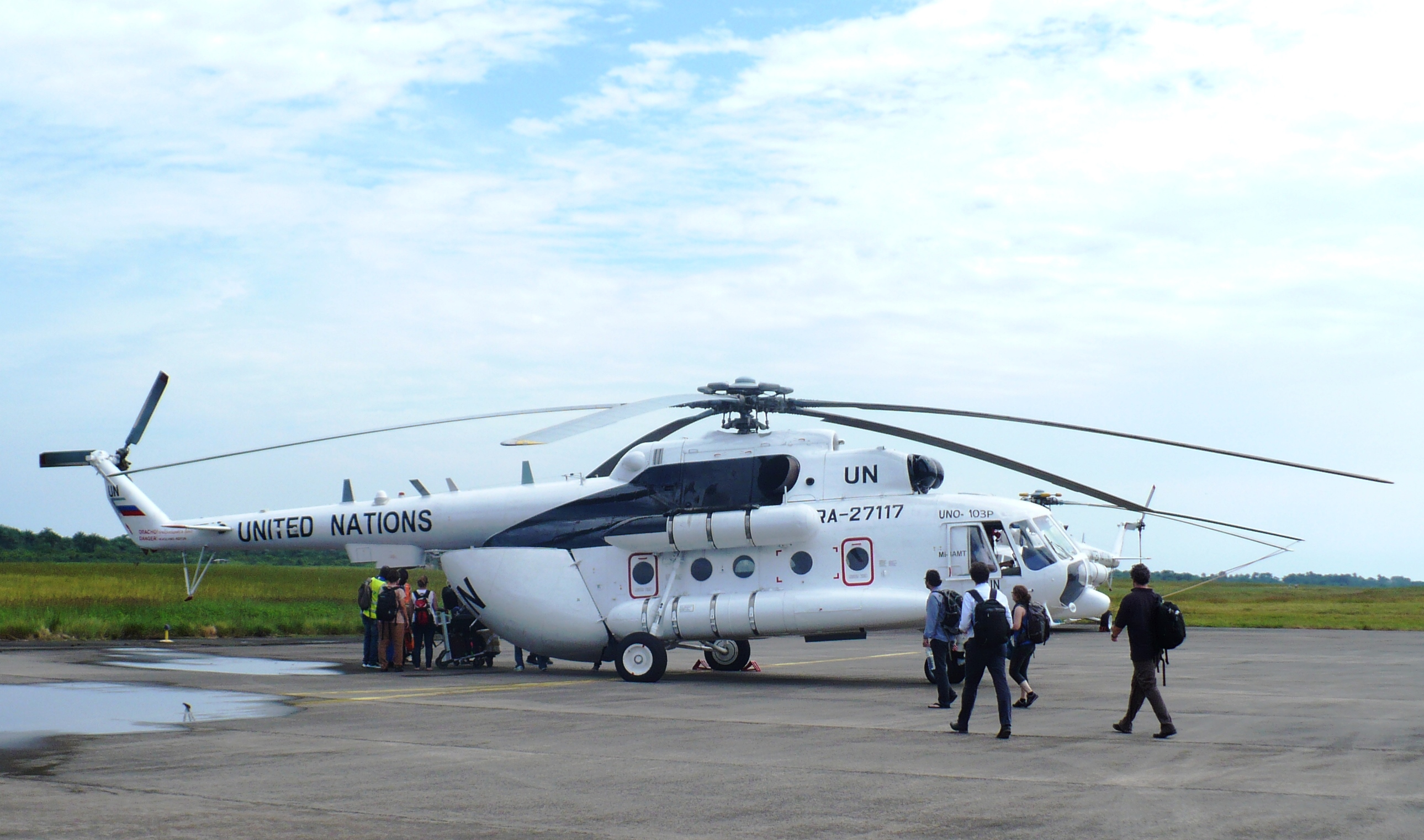Combatting Ebola: Dr. Ed Zuroweste Returns to West Africa
Editor’s Note: MCN’s Chief Medical Officer Dr. Ed Zuroweste is in West Africa to provide trainings to incoming clinicians on properly treating Ebola at Ebola treatment centers (ETCs). This is Ed’s second journey to Africa to assist in training clinicians on emergency response. This time, he is stationed in Guinea and Sierra Leone, at the epicenter of the Ebola outbreak. His weeks there are sponsored by the World Health Organization (WHO), which has organized the trainings. This is Ed’s summary of the first week in the field, in Conakry, Guinea. He has just finished his time in Guinea and is preparing to continue on to Sierra Leone. Ed assured us multiple times in his email to MCN staff that he is staying safe.
Our sympathies go to the family and friends of the member of the Cuban response team with whom Ed is working, who passed away in Conakry as a result of malaria.
I am part of a three-person group, hired by the World Health Organization (WHO), as part of the Ebola Emergency Response Team. Our mission here was to provide Phase One and Phase Two training for 37 Cuban physicians and nurses (19 nurses and 18 physicians) so that they will be able to work on the front lines in an Ebola treatment center (ETC).
On Monday, we started at 8:30 am. I gave two, 1-1/2 hour presentations; my co-trainers gave one each. All the presentations were in Spanish, of course, which about makes my head explode. We also did two skill stations, where the participants practice some of what they had learned. We finished at about 5 pm, and then we, the trainers, worked until about 10 pm preparing for day two.
On Tuesday, we again started at 8:30 am with four presentations and we had another couple of skill stations ending at 5 pm, with another four to five hours of prep that night.
On Wednesday, I spent time at the WHO office, arranging my next flight to Sierra Leone and getting my Visa for Sierra Leone, while the co-trainers gave a couple of talks. We all then went to the UN office here to attend an obligatory security briefing. In the afternoon, I gave two presentations, and we had two skill stations, which completed Phase One of the course.
On Thursday, we traveled for three hours in a caravan with a military escort in front and behind our two small buses with the Cuban clinicians and two smaller trucks with the three of us and all the needed equipment. We went to a very rural area where we set up to work in a Transitional Ebola Treatment Center. This center admits suspected Ebola patients; if they are found to be positive, they are transported by ambulance to the main center back in Conakry. If negative, they observe them for 21 days to make sure they do not get symptoms. Since they had not had a case for nine days, we were able to use the center for two days to simulate exactly what the Cuban clinicians would experience in an ETC. The accompanying picture is a group shot with the Cuban clinicians, when we worked with patient actors inside the treatment center with the PPE on.
On Thursday night, we slept in hotels with minimal services: good mosquito nets, off-and-on electricity, off-and-on water etc. There had been some recent unrest and violence against health care workers in this area so it was tense, and we had military police outside our doors that night.
 On Friday, we completed Phase Two of the training which allowed all of the Cuban physicians and nurses to go through all of the processes of putting on and taking off the PPE, which is extremely important and takes a lot of time. They also spent one or two hours inside the ETC with me and one of the co-trainers going over cases, using the patient actors and using real-life patient histories of recent Ebola patients in Guinea. That really gave them a chance to understand and practice what they would need to do, including starting IVs and drawing blood with all that equipment on, which is not easy to do.
On Friday, we completed Phase Two of the training which allowed all of the Cuban physicians and nurses to go through all of the processes of putting on and taking off the PPE, which is extremely important and takes a lot of time. They also spent one or two hours inside the ETC with me and one of the co-trainers going over cases, using the patient actors and using real-life patient histories of recent Ebola patients in Guinea. That really gave them a chance to understand and practice what they would need to do, including starting IVs and drawing blood with all that equipment on, which is not easy to do.
This completed Phase Two of the training. They will still have to go through Phase Three, which is three days working in a real ETC with a mentor, before they will be allowed to function independently.
Today, I made it to Sierra Leone safe and sound, and ready to work with a new group of Cuban clinicians. The trip included a flight on a UN jet, followed by a 15-minute helicopter ride from the airport to Freetown, Sierra Leone.
- Log in to post comments
